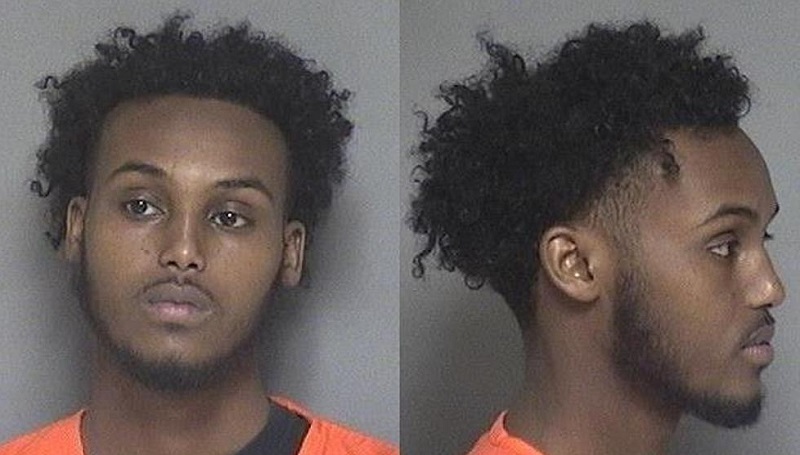
By Doug Wyllie
In early September 2022, officers responded to a report of shots fired at an apartment complex on the south side of Moorhead, Minnesota. Upon arrival, they discovered a man—later identified as 32-year-old Abdi Mohamed Abdi—dead from multiple gunshot wounds.
An initial investigation uncovered a surveillance video in which a gunman was seen chasing Abdi on foot, firing several shots as he pursued his victim. When Abdi fell to the ground—apparently wounded—the attacker then stood over him and fired five more shots at point-blank range, killing—in cold blood—the prone and helpless victim.
During the chase and one-sided gunfight, the gunman dropped his wallet, which investigators later recovered. From this, they knew that they were seeking a man named Idris Abdillahi Haji-Mohamed, who had a somewhat unremarkable criminal history including charges of disorderly conduct, driving with a revoked license, and failure to wear a seat belt.
Police soon apprehended, arrested, and charged Haji-Mohamed with second-degree murder. Welcome to the big league.
Bond Set, Met, Raised, and Called
Five days after the incident in Moorhead, Haji-Mohamed made a court appearance at which Judge Michael Kirk set bail at $2 million without conditions and $1 million with conditions—that he wear an ankle monitor, stay in Minnesota, and “remain law abiding.”
According to reports, Haji-Mohamed obtained the $1 million bond from Midwest Bonding two days hence and was released from the Clay County Jail precisely 10 days after a surveillance video recording clearly shows him murdering a man.
Two months later—just before Thanksgiving—a grand jury indicted Haji-Mohamed on the stiffer charge of first-degree murder and he was jailed. At a hearing to readdress bail after the first-degree murder indictment, Judge Galen Vaa set bond at $3 million unconditional and $1.75 million conditional—thus, $750K would need to be posted on top of the $1 million already posted and the abovementioned “conditions” would remain in place.
According to an Information Officer at the Minnesota State Court Administrator’s Office, Haji-Mohamed was able to post the additional $750K on December 7th.
Less than a month later, Haji-Mohamed reportedly shot and killed another man—later identified as 26-year-old Jeremy Demond Ellis—in a vehicle parking lot in Minneapolis. Police believe it was a drug-deal-turned-carjacking-turned-murder.
Reforming Wrongheaded Bail Reform
There has been a great deal of debate in recent years about the “fairness” of cash bail—critics have called cash bail “archaic” and “unjust” and “racist.” Some say it “criminalizes poverty” and that it “capitalizes on detainment.” Advocates of so-called “bail reform” initiatives argue that “releasing people pretrial does not negatively impact public safety” or “endanger the public.”
Tell that to the friends and family of Jeremy Ellis.
Whether or not Ellis was dealing drugs on the night he was killed—as Haji-Mohamed presently claims—is irrelevant to this discussion. What is relevant is the fact that the man who reportedly killed him had been recently arrested for murder, secured nearly $2 million bond for his own release, and then allegedly committed another murder within the span of roughly four months.
Those “bail reform” advocates might say the $1 million bond set by Judge Michael Kirk and the $750K additional bond subsequently set by Judge Galen Vaa was too much. It’s plainly evident—if published accounts are to be believed—that $1.75 million wasn’t enough to save the life of a 26-year-old man in Minneapolis.
A reasonable argument can be made that any cash bail amount for minor offenses—such as disorderly conduct, driving with a revoked license, and failure to wear a seat belt—would be too much.
A reasonable argument can be made that any cash bail amount for individuals in pretrial detention for more serious crimes—such as counts of second- and/or first-degree murder—would be too little.
It’s critical for people who preside over such decisions—particularly judges, grand juries, and prosecutors—have the wisdom to make choices that result in the best outcomes.
###
Author’s Note:In this space I aim to chronicle similar stories of individuals released on bond that stand accused of similar—or worse—offenses while free and awaiting trial for the initial offense. If you hear of such a case, please tell me what you know by sending me an email.